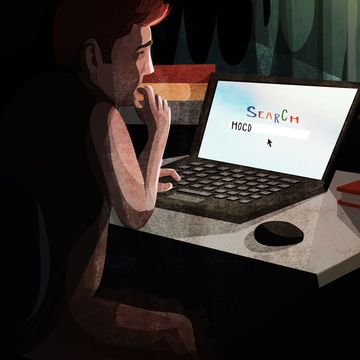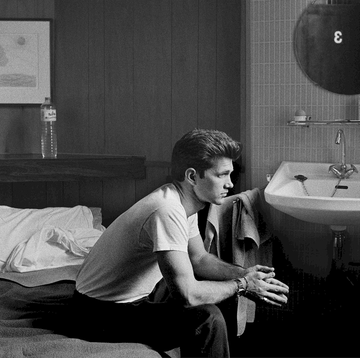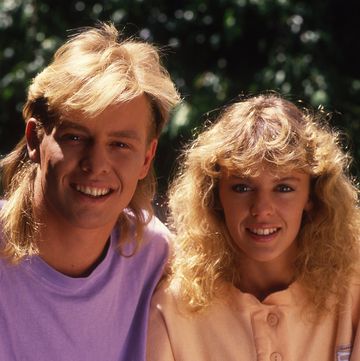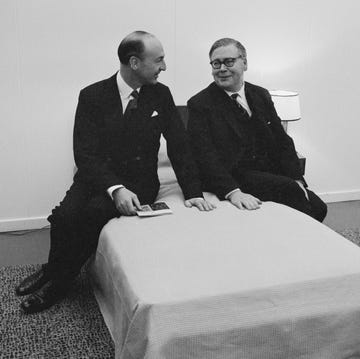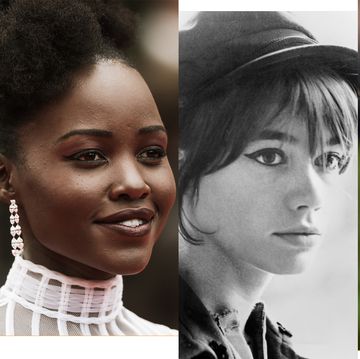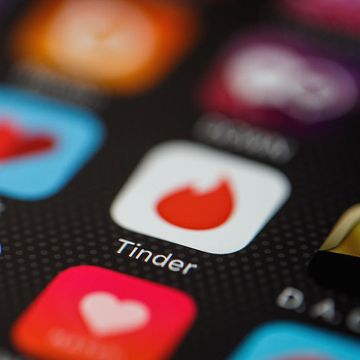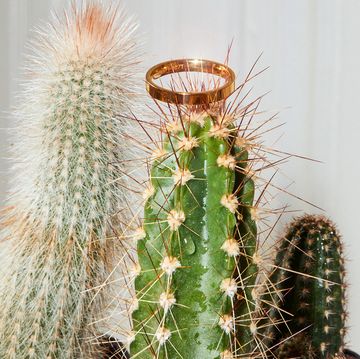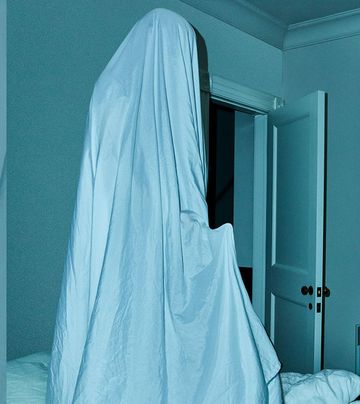"I was looking forward to this shoot with a website called Assylum," explains adult performer King Noire, "I was the first black guy they'd hired." Assylum specialises in bondage-heavy porn scenes set in a psychiatric hospital. As with all porn the performers and details change from scene to scene, but the hook is always the same: in the 'Assylum' doctors have sex with patients. But when King turned up for his shoot, instead of being given a doctor's uniform like other male performers, he was offered a janitor's uniform. He walked off set, and to this day a glance at the Assylum website shows they have still not cast a black male doctor.
Determined to do something about the discrimination he faced, King joined forces with fellow performer Jet Setting Jasmine. I met them at UK sex writing conference Eroticon, where they gave a jaw-dropping presentation on racism in the porn industry, and the ways in which they're campaigning for change.
"Is porn racist?" they asked the room, "sure - just ask porn performers." What followed on their screen was a deluge of screencapped tweets from white performers, many of which wouldn't look out of place in the comments of 4chan. White female performers using the 'n' word to market their latest interracial scenes, or tagging images and videos with #AllDicksMatter – a dismissive play on the #BlackLivesMatter movement. There are pictures of performers laughing next to confederate flags, and even a porn parody of '12 Years A Slave' which replaces 'slave' with 'inches.' Some branch out into Islamophobia – something King explains is on the rise in porn, reflecting increased Islamophobia in the US and UK more broadly. And it's not just individual performers – studios, too, make use of both subtle and overt racism when marketing their content. Jasmine shows an example of a website focused on anal scenes, in which a white performer gets labelled an 'Anal Queen', while a black performer doing the same scene is labelled a 'Hip Hop Whore.'
Women are routinely rejected for roles because of their race, as performer DeVoe explained: "The guy at my first meeting told me, 'We can't sell black women. You're not desirable to our audience. But if you'd like to give me a blow job behind the desk really quick, that would be cool.'"
Then there's the issue of pay disparity. White female performers often demand more money for shooting a scene with a black male performer. Mireille Miller-Young, author of the Feminist Porn Book, explained in a 2012 New York Times article that people of colour are routinely paid as little as half what white performers might be paid for the same scene. And in an industry that's worth an estimated $10-14 billion in the US alone, that's one hell of a pay gap.
The porn debate is often dominated by a simplistic question: is porn 'good' or 'bad'? 'Empowering' or 'degrading'? It makes very little sense: porn is a genre of media like films, novels or video games. Like other media, porn both shapes and reflects our society. Unlike other media, it often sidesteps scrutiny because we're unwilling to talk about it in public.
To begin with, it's tricky to get a handle on just how many people watch porn or how much we watch – genuine research is sparse, while scaremongering infographics by anti-porn campaigners are ten a penny. A 2012 study on heterosexual couples suggested that 36% of women and 73% of men watch porn while they're in a relationship, but that's likely a lowball estimate. I can tell you that on the day you're reading this PornHub will get between 4 and 5 million visits from within the UK. Millions more will visit other porn sites or watch scenes they've downloaded already. Yet chances are few will talk about it afterwards. Porn – good or bad – is a private thing. We don't livetweet or review it the way we would a Netflix show, and few of us would share recommendations to Facebook or Twitter.
And yet Miller-Young is unequivocal: porn requires active work from consumers as well. "Consumers drive the market!" she says. "So the adult industry needs to be treated just like any other industry, brand or product—leave reviews, suggestions, utilise social media to challenge their ethics around racism in entertainment. If you have been a patron to a company or entertainer that you are now able to recognise as unethical and or perpetuating racial stereotypes, boycott it. There is plenty of ethical pornography available; you should feel good in all aspects of intimacy—including where you shop for visual content."
That idea might make you nervous, because the very act of calling out racism in porn involves 'outing' yourself as someone who watches it – perhaps giving too much away about your sexual tastes. But there will likely be some who aren't just nervous because they don't want to change the status quo: they are actively getting off on fetishisation of people of colour. Racism as kink.
King and Jasmine explained the history of these narratives, from early erotic novels like Mandingo to modern porn categories like 'cuckold' and 'interracial', which stereotype black men as large, aggressive or more virile than white men.
Jasmine noted that porn is always reflective of society, and when I asked whether things were improving in 2017, she said: "This is a challenging question, mostly because of the racial tension in general society. Porn is an outlet for some of those taboos and socially unacceptable topics. So I think it will get worse before it gets better."
When talking about racism in 2017, perhaps the first thing that comes to mind is the hate-speech perpetuated by the alt-right rather than positive groups like BlackLivesMatter. The internet has given voice to racism on almost every platform: on Twitter and Facebook feeds, the comments on newspaper websites, and on porn sites too. To find out how problems are reflected in user-generated content and comments, I looked at two of the major tube sites, and asked them what steps – if any – they were taking.
At the time of writing, a search for the 'n' word on PornHub turns up over 300 user-uploaded videos – with the word used either in title, description or in comments. PornHub's terms and conditions explain that they do not allow "racial slurs or hate speech, (either aurally or via the written word)" yet there are plenty of scenes on the site which are centred around white women saying the 'n' word during sex or foreplay, or video titles which would breach this rule by anyone's measure. Is this a problem similar to Twitter's harassment issue, whereby sheer volume makes it impossible to police? PornHub rep Brett Hall told me: "We don't actively monitor for racist language but it is against our TOS [Terms Of Service]. We have a similar approach as YouTube where we rely on the community to flag content and comments against our TOS for us to review and take action." He explained that performers could also request videos be taken down if objectionable language was used to market them.
But this reliance on users and performers to take action means some of this content could potentially sit on the site forever, with people either unaware that they can report it or unwilling to engage with a porn site. Perhaps one of the most obvious changes larger porn sites can make is to start proactively enforcing their policies. Porn site Xhamster has a similar model to PornHub, with similar rules in its Terms of Service around use of racist terms or hate speech. But instead of relying on user reporting, Xhamster actively monitors uploads for racist language:
"We do moderate the use of the "n" word," explained Alex Hawkins from Xhamster, "and have blocked it from being used on user uploads or in descriptions … Unfortunately, it doesn't stop people from searching for terms." Alex explained that in February this year there were nearly 45,000 searches for the 'n' word – over 100,000 if you include spelling variations. Is there more they could be doing to combat racism in porn? Xhamster has previously done interesting things on its platform – alerting viewers to digital privacy laws or blocking searches for 'rape.' "We've used our platform to help combat homophobia, sexism and transphobia, and to promote better understanding of sexuality in general ... It's possible that in the future we might use the same tools for working against racism."
The point here is that racism in porn isn't a problem that just one or two people can tackle – like racism in film, TV and other media it requires effort at all levels. Jasmine and King are campaigning for performers and studios to wake up to problems of pay disparity, and porn marketing that offensively fetishises people of colour. But larger websites and consumers also need to do their bit if we're to see any change at all.
Dr David Ley is a psychologist and author of Ethical Porn for Dicks, A Man's Guide to Responsible Viewing Pleasure. Like Jasmine he was unequivocal about the importance of viewing porn as a media rather than a law unto itself. "The answer to porn is not getting rid of it, the answer is making porn and porn users more consciously responsible for our choices," he explained. "We need to be ethical consumers, working to reconcile our values and our porn viewing. In the same way as we argue for fair trade coffee and conflict-free diamonds, we must now demand pornography that we don't have to feel guilty about watching."
Ethical porn consumption isn't a new idea – for the last few years many porn performers and producers have been encouraging people to think about porn in the same way they'd view any other product. Jiz Lee's widely-read essay 'Ethical porn starts when you pay for it' was a wake-up call to many who had been using 'free' tube sites for years. As Jiz explains in the essay, "paying for porn is the most direct way to ensure key ethical production values." Jasmine and King advise consumers to do exactly this: refuse to fund people who would market their videos with racism or pay performers different rates depending on their race. And complain – as a consumer – when studios and performers do things you object to.
As they wrapped up their Eroticon talk, Jasmine and King gave a clear call to action for anyone involved with the adult industry. Performers, they explain, can demand equal pay for their work and demand that companies disclose how their work will be marketed. But those who work on the periphery – like the audience of sex bloggers and journalists who were there to hear them speak – also need to do their part by sharing the message, and helping to create an environment where porn is held to the same standards as any other entertainment.
In 2017, our porn debate is still usually taken up by that initial question: is porn 'good' or 'bad'? 'Empowering' or 'degrading'? But what Jasmine and King are doing to combat racism in the porn industry demonstrates perfectly why we need to ditch this question, to stop thinking of porn as either an evil or benevolent monolith and start examining it for what it really is: a genre of media, capable of reflecting and shaping our views as a society. When we recognise that, we can start examining problems in detail, and all the different people and organisations that feed into those problems. Some responsibility lies with white female performers who demand higher fees for shooting interracial scenes, some lies with the studios that sign off on racism by paying different rates. Some lies with websites which don't properly enforce their terms of service around racist language.
And, yes, some also lies with us, the viewers: not just those who get off on racist stereotypes, but the millions more who either ignore the problem entirely, or shrug it off because porn is 'private.' It may be private, but it isn't invisible. It's as much a part of our society as films, books and TV. And like those other things, we have the power to help change it for the better.
Jet Setting Jasmine and King Noire own RoyalFetishFilms – an independent production studio with a focus on kink and fetish. They also run 'Steel and Stilettos' fitness classes.



